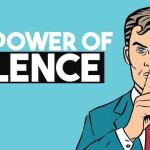Social Anxiety Disorder Signs and Symptoms
I struggled with a social anxiety disorder during my adolescence and was completely unaware of it. Days at school can be excruciating. In class, if I was asked to read or answer a question, I would begin to sweat and blush in anticipation of embarrassing myself. I was humiliated by my sweating and blushing, so it became a self-fulfilling prophecy.
Regardless of whether I responded appropriately to the teacher, I would be deeply ashamed of myself. I would be marked for the rest of the day because I had sweated through my top. I felt like I'd never be able to function regularly in the manner that everyone else seemed to.
This barely scratches the surface of the agony of those days. One of many circumstances in which I would experience social anxiety was being called on by a teacher. The same was true when it came to group assignments, conversing with students, and one-on-one conversations with teachers. No of how full my bladder felt, I would sooner go to the bathroom than raise my hand in class.
Worst of all, I had a strong sense of being entirely alone. I was convinced that I was the only one who felt this way. Years later, I discovered that what I had gone through was rather common.
What is the definition of Social Anxiety Disorder?
Social anxiety disorder (also known as social phobia) affects around 7% of teenagers and adults. It can be exceedingly difficult to live with, resulting in low self-esteem, social difficulties, and difficulty adapting to new conditions. This might make it difficult for people with a social anxiety disorder to succeed in school or adjust to a new job.
Unfortunately, social anxiety disorder is typically dismissed with adjectives like shy, uncomfortable, quiet, or introverted. Many persons who suffer from social phobia are unaware that they have a problem. Rather, they believe that they are the source of the problem. As a result, they do not seek assistance or even consider it a possibility.
Knowing the signs and symptoms of social anxiety disorder can help you or a loved one recognize it. It can be adequately treated, and not having to bear the weight on your own is a huge relief.
These are some indications and symptoms to look for to help you recognize social phobia.
What are the Signs and Symptoms of Social Anxiety?
The signs and symptoms of social anxiety disorder are classified into several categories. Physical signs and symptoms, as well as mental and behavioral signs and symptoms, fall into this category.
Physical Signs and Symptoms
We often think of anxiety as a mental illness, yet it has very physical manifestations. These are some of them:
- Blushing.
- Sweating.
- Fast heartbeat.
- Trembling.
- Difficulty speaking.
- Nausea
- Lightheadedness
- Breathlessness
The physical symptoms of social phobia vary from person to person. Whether you've had one or several of the above symptoms, the amount of distress they cause you are the deciding factor. Many persons who suffer from social anxiety disorder are afraid of the physical symptoms and avoid social situations as a result.
Behavioral and emotional symptoms
Social anxiety disorder causes a great deal of difficulty due to its emotional and behavioral manifestations. They are as follows:
- Aversion to social situations
- Fear of being publicly humiliated
- Days or weeks before a social occasion, worrying about it
- Fear of shame as a result of outward indicators of distress
- Social connections are avoided.
- Avoiding social situations
- Fear of making eye contact with strangers
- After the event, analyze your "performance" in a social engagement
These symptoms are distressing and make it difficult to perform in everyday situations. They can cause you to avoid going to work or school, making new acquaintances, talking on the phone, attending job interviews, eating in public, and other crucial social contacts that are required to live the life you want.
My social anxiety was not alleviated by learning about these indications and symptoms. It did, however, alleviate me of the burden of believing I was alone. I didn't have to wait for confidence to appear out of nowhere. Instead, I learned that I could try to overcome my social phobia.
If you suspect you have a social
anxiety condition, see a therapist or psychiatrist as soon as feasible. Consider speaking to a loved one who is suffering in silence to let them know they are not alone.
Conclusion
Knowing the signs and symptoms of social anxiety disorder can help you or a loved one recognize it. Social anxiety disorder affects around 7% of teenagers and adults. It can be exceedingly difficult to live with, resulting in low self-esteem, social difficulties, and difficulty adapting to new conditions. The signs and symptoms of social anxiety disorder are classified into several categories. Social anxiety disorder causes a great deal of difficulty due to its emotional and behavioral manifestations.
Consider speaking to a loved one who is suffering in silence to let them know they are not alone. See a therapist or psychiatrist for help if you suspect you have a social anxiety condition.








